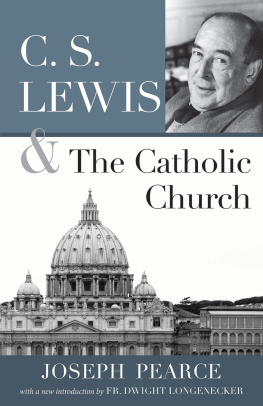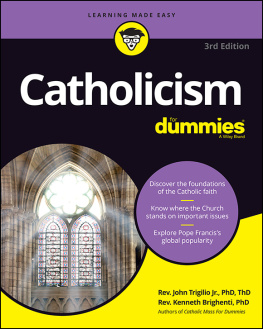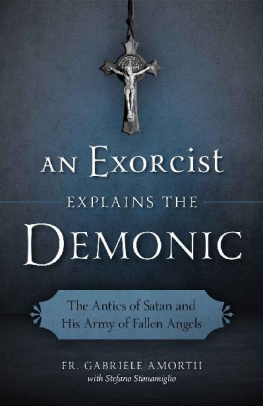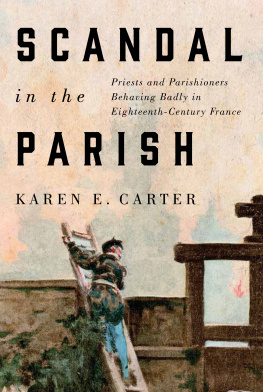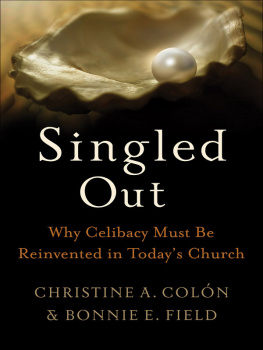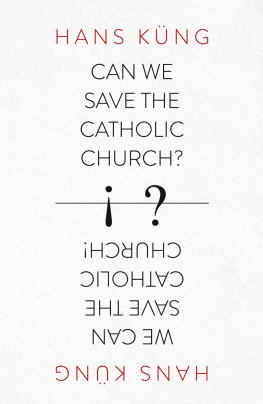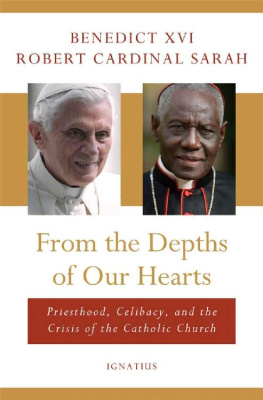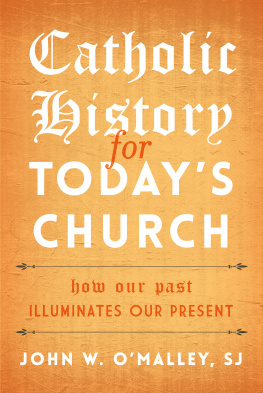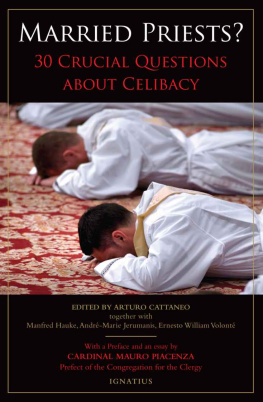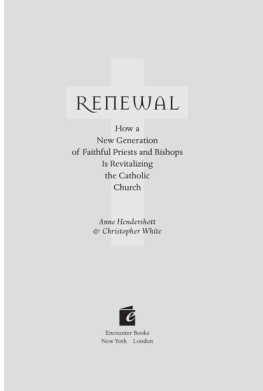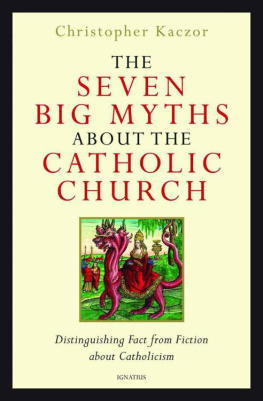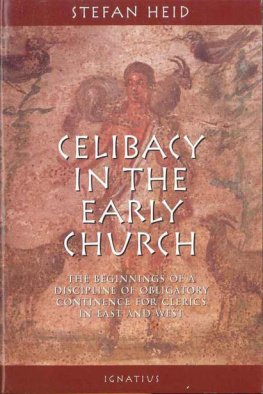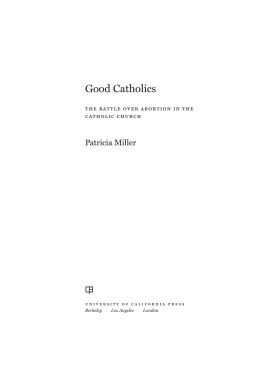Catholic Church - Unnatural Frenchmen: the politics of priestly celibacy and marriage, 1720-1815
Here you can read online Catholic Church - Unnatural Frenchmen: the politics of priestly celibacy and marriage, 1720-1815 full text of the book (entire story) in english for free. Download pdf and epub, get meaning, cover and reviews about this ebook. City: France, year: 2015, publisher: University of Virginia Press, genre: Home and family. Description of the work, (preface) as well as reviews are available. Best literature library LitArk.com created for fans of good reading and offers a wide selection of genres:
Romance novel
Science fiction
Adventure
Detective
Science
History
Home and family
Prose
Art
Politics
Computer
Non-fiction
Religion
Business
Children
Humor
Choose a favorite category and find really read worthwhile books. Enjoy immersion in the world of imagination, feel the emotions of the characters or learn something new for yourself, make an fascinating discovery.
- Book:Unnatural Frenchmen: the politics of priestly celibacy and marriage, 1720-1815
- Author:
- Publisher:University of Virginia Press
- Genre:
- Year:2015
- City:France
- Rating:5 / 5
- Favourites:Add to favourites
- Your mark:
- 100
- 1
- 2
- 3
- 4
- 5
Unnatural Frenchmen: the politics of priestly celibacy and marriage, 1720-1815: summary, description and annotation
We offer to read an annotation, description, summary or preface (depends on what the author of the book "Unnatural Frenchmen: the politics of priestly celibacy and marriage, 1720-1815" wrote himself). If you haven't found the necessary information about the book — write in the comments, we will try to find it.
Unnatural Frenchmen: the politics of priestly celibacy and marriage, 1720-1815 — read online for free the complete book (whole text) full work
Below is the text of the book, divided by pages. System saving the place of the last page read, allows you to conveniently read the book "Unnatural Frenchmen: the politics of priestly celibacy and marriage, 1720-1815" online for free, without having to search again every time where you left off. Put a bookmark, and you can go to the page where you finished reading at any time.
Font size:
Interval:
Bookmark:
UNNATURAL
FRENCHMEN
The Politics of
Priestly Celibacy
and Marriage,
1720-1815
E. Claire Cage
UNIVERSITY OF VIRGINIA PRESS CHARLOTTESVILLE AND LONDON
University of Virginia Press
2015 by the Rector and Visitors of the University of Virginia
All rights reserved
Printed in the United States of America on acid-free paper
First published 2015
9 8 7 6 5 4 3 2 1
Library of Congress Cataloging-in-Publication Data
Cage, E. Claire, 1982
Unnatural Frenchmen : the politics of priestly celibacy and marriage, 17201815 / E. Claire Cage.
pages cm
Includes bibliographical references and index.
ISBN 978-0-8139-3712-0 (cloth : alk. paper) ISBN 978-0-8139-3713-7 (e-book)
1. CelibacyCatholic ChurchHistory18th century. 2. CelibacyCatholic ChurchHistory19th century. 3. Catholic ChurchClergyHistory18th century. 4. Catholic ChurchClergyHistory19th century. 5. Catholic ChurchFranceInfluence. I. Title.
BX1912.85.C34 2015
253'.252094409033dc23
2014042620
All illustrations courtesy of Bibliothque nationale de France, Paris
To my parents
ACKNOWLEDGMENTS
It is a great pleasure to thank the many colleagues, friends, and institutions whose generous intellectual, financial, and moral support made this book possible. First and foremost, I am deeply indebted to David Bell for his invaluable criticism, guidance, and support. He has been an exemplary advisor, thoroughly dedicated to his students and remarkably generous with his time and advice. Other outstanding mentors and the vibrant intellectual community at Johns Hopkins were also crucial to this project and to my development as a scholar.
In researching and writing this book, I have incurred many other debts. For their insights and comments on my work, I would like to thank Kaitlin Bell Barnett, Joseph Byrnes, Toby Ditz, Mary Fissell, Michael Fried, Frye Gaillard, Julie Hardwick, Jennifer Heuer, Gary Kates, Eddie Kolla, Antoine Lilti, Xavier Marchaux, John Marshall, Mary Ashburn Miller, Mollie Nouwen, Jennifer Popiel, Elena Russo, Mary Ryan, Timothy Tackett, Judith Walkowitz, and David Woodworth. Khalid Kurji deserves special thanks for tirelessly reading and commenting on various drafts of this manuscript; he has been a constant source of ideas, support, encouragement, and friendship. I am also grateful for the excellent feedback from my dear friends and colleagues in the Johns Hopkins gender workshop. My work has also benefited from my French history colleagues comments and questions at the meetings of the Western Society for French History and the Society for French Historical Studies.
The Fulbright Commission, a Bourse Chateaubriand, and the Camargo Foundation made possible my two years of research and writing in France. The Andrew W. Mellon Foundation and the American Council of Learned Societies also provided generous funding for this project. I am grateful for additional financial support from the University of South Alabama and for the moral support of my colleagues there, especially Clarence Mohr. I would also like to express my appreciation to the staffs at the Archives nationales, the Bibliothque nationale, and the Bibliothque de la Socit de Port-Royal.
It has been a pleasure to work with the University of Virginia Press. I thank its editors and staff, especially Angie Hogan, Morgan Myers, and Ellen Satrom. I am also deeply grateful for the insightful feedback from the two anonymous readers.
Sharon Cage has graciously read successive drafts of this work and has been a tremendous help. I want to thank her and the rest of my family, especially Roy Cage, Courtney Monk, and Earl Mc-Callon. Their love and support mean more to me than I could possibly express.
INTRODUCTION
In 1805 Jacques-Maurice Gaudin, a seventy-year-old librarian and judge in La Rochelle, published a treatise designed to educate and advise his son. Fearing that he would not live long enough to see the seven-year-old into adulthood, Gaudin laid out an educational program designed to ensure that the boy would be well equipped to fulfill his duties both to God and to the patrie, or fatherland. While Gaudins publication followed the conventional norms of fatherly advice, his background was anything but conventional. He had married and become a father late in life after renouncing his vows of priestly celibacy and marrying his housekeeper in 1793 at the height of the French Revolution.
Gaudin had in fact been a strong advocate for the abolition of clerical celibacy before revolutionaries legalized the marriage of priests. A vicar in Corsica in the 1770s and later in the Vende region of western France, Gaudin anonymously published in 1781 a lengthy treatise attacking the practice. The Disadvantages of Priestly Celibacy, Proven by Historical Research criticized celibacy as a useless, unnatural, and immoral institution. Gaudin argued that it was harmful both to society and to the well-being of priests themselves. He urged the French state and the papacy to permit priests to marry so there would no longer be such a sharp contradiction between their priestly duties and their natural inclinations. He implored the pope to release to the patrie and to humanity these millions of unfortunate souls groaning under the weight of their chains. Gaudin believed that marriage and family life would more closely tie priests,
Although banned, the book sold rapidly. An Italian translation soon appeared, and a second French version was printed under a different title in 1783. The printing of a new French edition in 1790 spurred the French jurist and theologian Gabriel-Nicolas Maultrot to publish a tract refuting Gaudins claims and defending the theological and historical foundations of clerical celibacy. To Maultrots dismay, Gaudin was nonetheless elected in September 1791 as a deputy to the revolutionary Legislative Assembly, on the day after the government lifted legal restrictions on the marriage of ecclesiastics. Gaudin later became one of the approximately six thousand priests who married during the French Revolution.
Clerical celibacy had been a controversial issue in eighteenth-century France long before Gaudin stepped into the fray. Starting in the 1720s, a burgeoning literature argued that the marriage of priests was essential to promoting population growth and prosperity, to combating sexual depravity and disease, and to making better priests and citizens. Over the course of the century, proliferating and increasingly urgent appeals for the abolition of clerical celibacy appeared, which were primarily couched in the language of nature, social utility, citizenship, and patrie. Debates between critics and advocates of clerical celibacy came to involve a diverse group of commentators: theologians, jurists, medical authorities, political economists, legislators, journalists, playwrights, pornographers, prelates, and ordinary men and women. The most influential figures in eighteenth-and early-nineteenth-century France weighed in on the issue, including Montesquieu, Denis Diderot, Voltaire, Jean-Jacques Rousseau, Maximilien Robespierre, Charles-Maurice de Talleyrand, Franois-Ren de Chateaubriand, and Napoleon Bonaparte. But most of the interlocutors in the debates were little known, and many of the most significant were priests themselves.
After the abolition of vows of celibacy and the legalization of clerical marriage during the Revolution, the movement against celibacy became a campaign to make priests fulfill their patriotic duties of marriage and procreation. During the Terror (179394), radical revolutionaries treated celibacy as a crime and a threat to the moral, political, and social order. Some aggressively promoted clerical marriage by threatening unmarried priests with deportation, arrest, imprisonment, and even death. A priest from the department of Vienne, for example, claimed that asleep in his bed at night, he was taken by force by revolutionary brigands... [with] a pike and bayonet to his stomach to the town hall where he married in a moment when fear had stripped him of any kind of judgment or reflection. Many priests indeed married under duress. Others, such as Gaudin, married with great enthusiasm and revolutionary fervor.
Next pageFont size:
Interval:
Bookmark:
Similar books «Unnatural Frenchmen: the politics of priestly celibacy and marriage, 1720-1815»
Look at similar books to Unnatural Frenchmen: the politics of priestly celibacy and marriage, 1720-1815. We have selected literature similar in name and meaning in the hope of providing readers with more options to find new, interesting, not yet read works.
Discussion, reviews of the book Unnatural Frenchmen: the politics of priestly celibacy and marriage, 1720-1815 and just readers' own opinions. Leave your comments, write what you think about the work, its meaning or the main characters. Specify what exactly you liked and what you didn't like, and why you think so.


